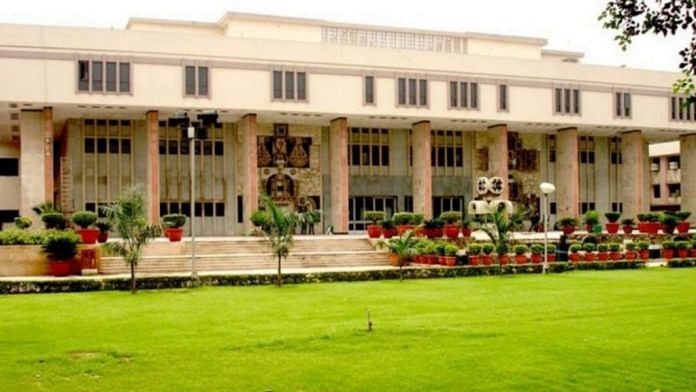New Delhi: Files of 14 advocates, including three women lawyers, which were recommended by the Supreme Court Collegium for appointment as judges to five different high courts have been sent back by the central government for reconsideration, ThePrint has learnt.
These recommendations were pending with the government for more than a year, in some instances for almost 24 months.
Government sources told ThePrint that two of the 14 names were returned for the second time. This means that the law ministry declined to accept the two names despite the collegium reiterating them.
According to sources, five of the 14 names were for the Calcutta High Court and the proposal for their elevation was sent to the government in July 2019.
Meanwhile, four recommendations were for the Delhi HC. They were part of a list of six names sent to the Centre in August 2020 and of these, the government had notified two of the advocates.
Two names belonged to the Jammu and Kashmir High Court, which had suggested both in its proposal sent to SC in March 2019. The top court collegium had cleared one name in October 2019 while the second one was forwarded in March this year, after the appointment body received the additional inputs sought by it regarding the advocate’s legal practice.
The returned files also included two names meant for Karnataka HC, one of which has been sent back for the second time. This candidate was initially recommended in October 2019 and his name was reiterated in March this year.
Similarly, the government has once again sought reconsideration of a lawyer chosen for the Kerala HC. The top court collegium had in March 2019 suggested his elevation and in March 2021 reiterated its decision, overruling Centre’s earlier objections.
The decision to send back the recommendations a second time could also revive the row between the judiciary and executive over appointments in higher judiciary since it disregards the provisions laid down in the Memorandum of Procedure (MoP) — the rulebook followed by the collegium and Centre on judicial appointments.
According to the MoP, if the collegium reiterates a recommendation, it is binding on the government.
Also read: Citizens’ right & duty to ensure free press, expose lies of state, says Justice Chandrachud
Severe vacancy crisis in high courts
The development comes after the government had promised SC to communicate its decision on files that have been pending with it for over six months within three months in April this year.
This was after the top court was apprised of the severe vacancy crisis that the high courts have been reeling under, with some functioning at less than 50 per cent of sanctioned strength.
A bench led by former CJI S.A. Bobde had prescribed a timeline for the central government to make appointments of judges in the high courts.
It had then underscored the “promptness in the process is to facilitate the larger cause of dispensation of timely justice”.
The bench had also highlighted the “crisis situation” in HCs and called for a “collaborative” exercise involving the judiciary and the government, regretting that the HCs have a shortage of around 40 per cent judges.
On names that are reiterated by the collegium, the judgment had said “such appointments should be processed and appointments should be made within three to four weeks.”
For appointments of judges to the higher judiciary, a list of proposed candidates is sent by the concerned high court to the Centre as well as the SC Collegium, led by Chief Justice of India (CJI) and top two senior judges of the apex court after the CJI.
The collegium can take up the files for consideration only after the government places complete material, including its inputs, regarding a candidate before it. Upon deliberations the names are then forwarded to the government for final notification. In case the government returns the files, the SC collegium can either reiterate it or recall the proposal.
Also read: Supreme Court’s 9 new judges — 3 women, 1 OBC, 1 SC and from 9 different states



